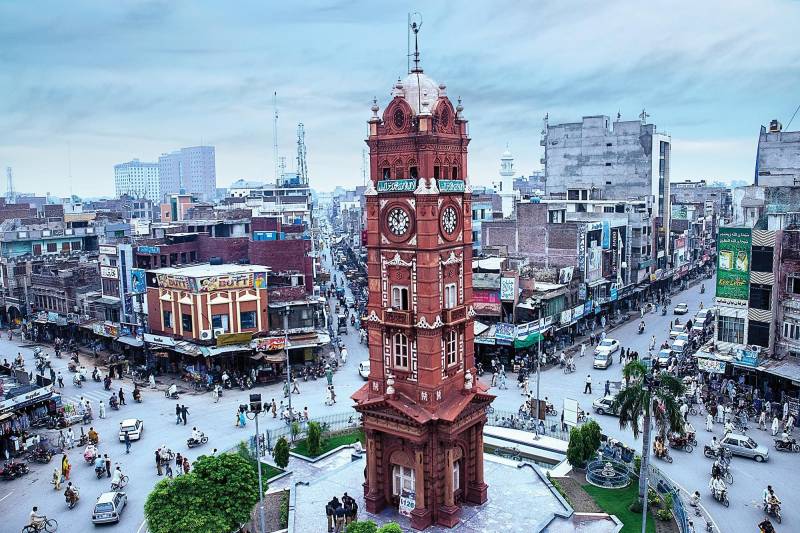
Wasting time is something I’m familiar with. I waste my own and I watch other people waste my time as well as theirs.
With this in mind, what if I imagine a jam-packed day of activities – including an appointment with an orthopedic doctor, interview with a government official at the Town Hall office on local governments, a Zoom meeting with the editorial team, an appointment with a tax consultant right before the tax return submission deadline, celebrate a friend’s 60th birthday, and prepare dinner for the family. Would it be feasible to accomplish all of these in a single day – as planned, no plan B, and no waste of time?
So, imagine…
I leave my house, determined to be punctual for my appointment with an orthopedic doctor. As I navigate through the chaotic traffic caused by road construction, I miraculously manage to arrive at the clinic on time. I inquire about the doctor's availability from the receptionist, and he informs me that the doctor is on his way, saying, "Doctor saab rastey mein hain." Glancing at the appointments' register, I notice more patients scheduled for my time slot. That's when I realize that I'll have to endure a lengthy wait.
An hour passes before the doctor finally arrives, and he's ready to see me two hours after my originally scheduled appointment time.
Thereafter, I hastily make my way to the Town Hall, situated on the opposite side of the city. I navigate the signal-free roads, driving with a blend of urgency and caution, as I must watch out for motorcyclists taking shortcuts against traffic flow to save time and fuel. Upon reaching the office, I approach the clerk and request that he notify sahab of my presence. The clerk briefly looks at me, and replies, “Mein check karta hoon,” before leaving the room.
He returns with the well-rehearsed response that his boss is busy in another important meeting, “Saab aik zaroori meeting mein hain." It's a response I've encountered on previous occasions, and it's likely something you've experienced as well.
Next, I log into Zoom for the editorial team meeting. I wait for the admin to grant me access, and he does so promptly. But, he relays, that “boss” is currently occupied with a TV show recording and is running late. We wait for a while, then decide to reschedule the meeting for a more convenient time.
Feeling a sense of relief that the meeting didn't drag on, I start gathering the documents to support my expenses and earnings for the previous tax year. As I sift through bank statements and cheque books, I hear on the television that the deadline for filing tax returns has been extended.
I meet my friend, share some happy moments with her over tea and cake, and return home to prepare dinner for my family. There’s no gas!
At the end of the day, I must remind you, this was an imaginary day. Yet, it's a remarkably accurate depiction of a typical day lived by ordinary people in our part of the world. Students frequently run late for classes, offices don't commence work until an hour after their scheduled start time, and trains are consistently delayed. People are usually in a rush, which stresses them and those around them.
We live in a country where delays in floating tenders for the import of LNG spot cargoes and awarded contracts at higher rates by Pakistan LNG Ltd (PLL) resulted in losses of Rs10.6 billion in 2020-21. In this same country, about 52,450 cases were pending in the Supreme Court of Pakistan as of February 2023, and the much-awaited elections are scheduled for some elusive date at the end of January 2024.
So, if delays are a common occurrence in our daily lives, why, then, was a young student so disturbed by Caretaker Prime Minister Anwar-ul-Haq Kakar's 50-minute late arrival at LUMS? At the start of his question, he reminded Kakar about his late arrival, to which he probably expected a brief and straightforward apology, something like, "Sorry, I got late." Instead, he was told that caretakers also bear significant responsibilities.
We reside in a country where punctuality is a rare concept. We live amidst uncertain political, economic, and social circumstances. Governments can change unexpectedly, and the International Monetary Fund (IMF) may or may not grant loans. The supply of electricity and gas is unpredictable, as is the availability of water. Essentially, we have come to accept a culture of tardiness.
We must constantly remind ourselves that, despite our mortal nature, we require that extra motivation to encourage us to be more on time.

